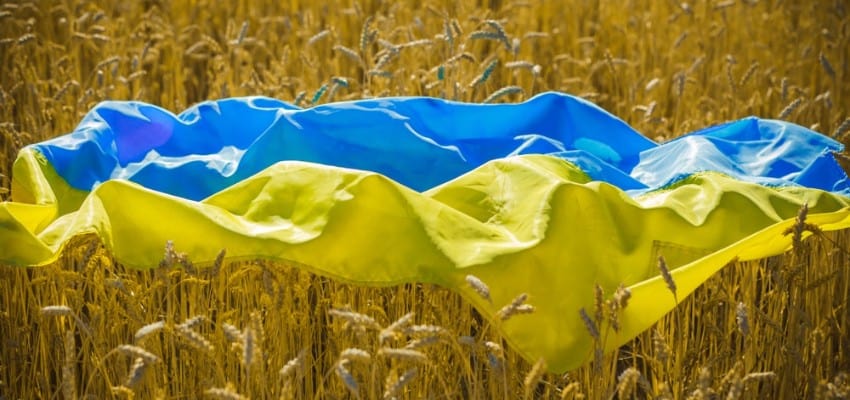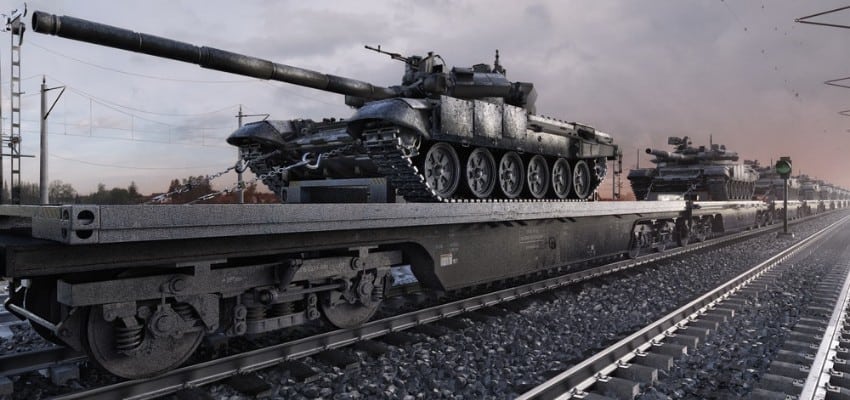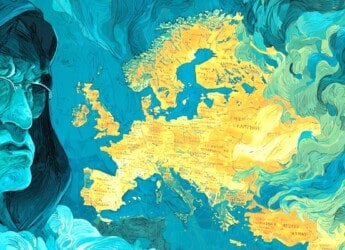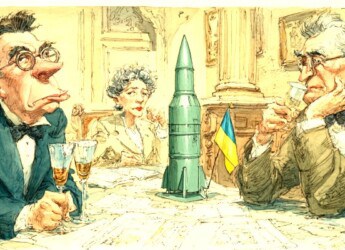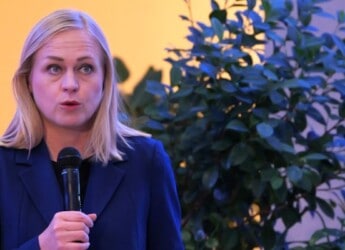|
|
Ukraine Conflict Assessment: Update from the Institute for the Study of War (March 2, 2022)
Information - 97%
Insight - 98%
Relevance - 90%
Objectivity - 96%
Authority - 96%
95%
Excellent
A short percentage-based assessment of the qualitative benefit of the post highlighting the recent Ukraine conflict update from the Institute for the Study of War.
Editor’s Note: One of the most accurate and detailed sources for ongoing updates on the Ukraine crisis is the Ukraine Conflict Update from the Institute for the Study of War. The Institute for the Study of War (ISW) is a 501(c)(3) organization and produces strictly non-partisan, non-ideological, fact-based research. ISW seeks to promote an informed understanding of war and military affairs through comprehensive, independent, and accessible open-source research and analysis. ISW’s research is made available to the general public, military practitioners, policymakers, and members of the media. While providing a daily synthesis of key events related to the Russian aggression against Ukraine, information from the updates may be beneficial for cybersecurity, information governance, and legal discovery professionals as they follow the business, information technology, and legal trends and trajectories impacted by the current Ukraine conflict.
Assessment*
Ukraine Conflict Update – March 2, 2022
- Institute for the Study of War (ISW), Russia Team
- Critical Threats Project (CTP), American Enterprise Institute
Specific Update Background Info
- ISW published its most recent Russian campaign assessment at 4:30 pm EST on March 2.
- This daily synthetic product covers key events related to renewed Russian aggression against Ukraine.
Key Takeaways March 2
- Russian forces resumed offensive operations against Kyiv’s western outskirts on March 2 after pausing for resupply from February 27 to March 1 but failed to secure any additional territory.
- Russian forces launched offensive operations in Zhytomyr Oblast, expanding their envelopment of Kyiv further west than ISW previously assessed—likely to outflank stronger-than-anticipated Ukrainian resistance and limited Ukrainian counterattacks in Kyiv’s outskirts.
- Russian forces renewed advances toward northeastern Kyiv on March 2, reaching a line approximately 65km from the city center on that axis.
- Russian forces assaulted central Kharkiv and continued to heavily bombard the city on March 2, likely increasing civilian casualties.
- Russian forces fully encircled Mariupol as of March 2 and are conducting a deliberate campaign to destroy critical civilian infrastructure and residential areas in a likely attempt to force the city to surrender.
- Russian forces continued to reduce pockets of Ukrainian resistance in Kherson on March 2 and will likely secure the city in the next 24 hours if they have not done so already.
- The Russian Ministry of Defense released implausibly low Russian fatality counts for the first time on March 2, preparing the Russian population for the arrival of injured and killed service members back to Russia.
- The Kremlin made inconsistent statements regarding negotiations with Ukraine but agreed to a second round of talks scheduled for March 3.
- The Kremlin continued trying to control the domestic and international narrative around the invasion by restricting Russian citizens’ freedom of speech and access to information while framing Ukraine and the West as aggressors.
- The Kremlin continued to struggle with Western sanctions while it set conditions for longer-term domestic capabilities.
- Ukrainian defense officials claimed Ukrainian forces thwarted an assassination attempt targeting Ukrainian President Volodymyr Zelensky after a tip from anti-war Russian intelligence officers on March 1.
- Western states announced additional sanctions targeting Russia and Belarus while more private companies suspended operations in Russia.
- NATO and EU countries continued delivering lethal military aid to Ukraine on March 2.
- International organizations and Western leaders are increasingly concerned about Russia’s indiscriminate targeting of civilians and use of banned weapons as civilian casualties rise.
- The UN General Assembly voted on March 2 overwhelmingly in favor of a motion demanding Russia stop military operations in Ukraine; China and India abstained.
- Record-setting refugee flows began to strain the support structures in states neighboring Ukraine on March 2.
- The International Atomic Energy Agency (IAEA) and Ukrainian officials urged caution as Russian forces advanced toward another Ukrainian nuclear power plant on March 1 and 2.
- Global oil and gas prices continued to skyrocket despite Western efforts to avoid sanctioning Russia’s energy sector.
Situation Map: Assessed Control of Terrain in Ukraine and Main Russian Axes
Read the original complete update.
* Shared with direct express permission from the Institute for the Study of War (ISW).
About the Institute for the Study of War Research Methodology
ISW’s research methodology relies on both primary and secondary sources, enabling researchers to develop a comprehensive understanding of the situation on the ground. In order to analyze military and political developments in any given area, ISW’s research analysts must wholly understand the systems of enemy and friendly forces. They must also understand the population demographics, physical terrain, politics, and history of that area. This lays the analytical foundation for understanding the reasons for particular developments and fulfilling their assigned research objectives. ISW analysts also spend time in places like Iraq, Afghanistan, and elsewhere in order to gain a better understanding of the security and political situation and to evaluate the implementation of current strategies and policies. Our researchers compile data and analyze trends, producing a granular analysis of developments in areas of research, producing an accurate, high-resolution, timely, and thorough picture of the situation. ISW’s research methodology guarantees its success and commitment to improve the nation’s ability to execute military operations, achieve strategic objectives, and respond to emerging problems that may require the use of American military power.
About the Institute for the Study of War
The Institute for the Study of War advances an informed understanding of military affairs through reliable research, trusted analysis, and innovative education. We are committed to improving the nation’s ability to execute military operations and respond to emerging threats in order to achieve U.S. strategic objectives. ISW is a non-partisan, non-profit, public policy research organization. Learn more, get involved, and contribute today.
Additional Reading
- [Annual Update] International Cyber Law in Practice: Interactive Toolkit
- Data Embassies: Sovereignty, Security, and Continuity for Nation-States
Source: ComplexDiscovery
